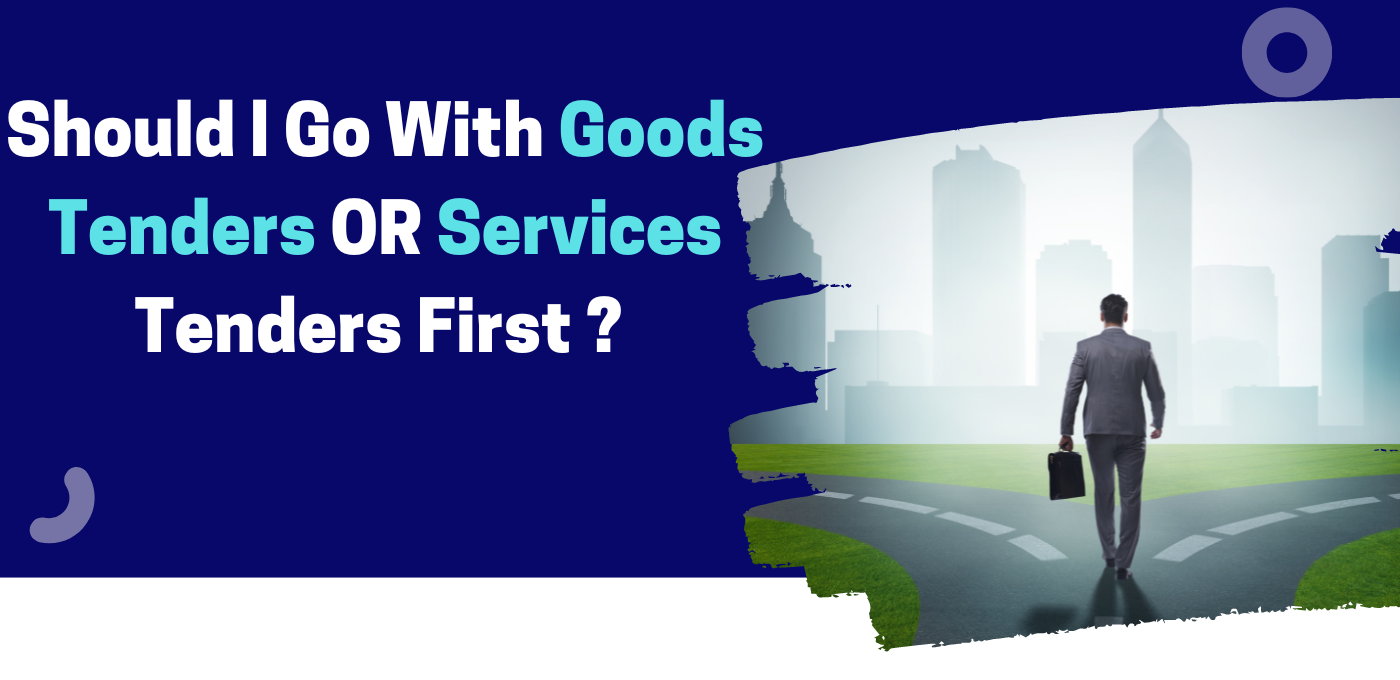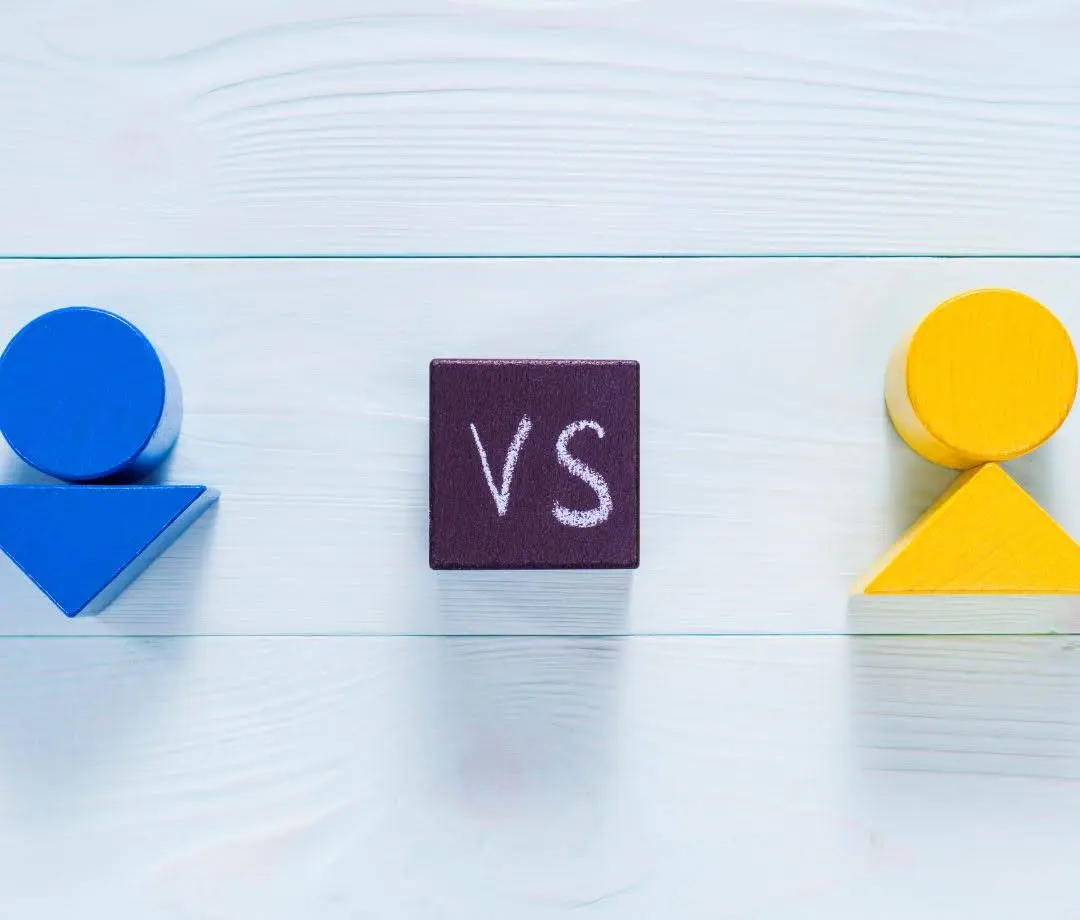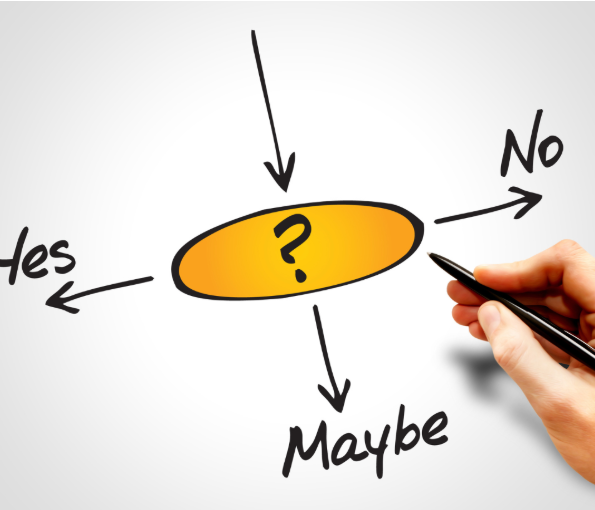Should I Go With Goods Tenders or Service Tenders First To The Market?
TenderingClaris Zimbiti | Dec 10, 2023 | | | |

This is a question I got from someone who signed up for my email newsletter. I have turned it into a blog post that talks about the differences between goods tenders and service tenders.
Question: I run a small business and I have been selling to other B2B companies for five years. I now want to expand into the government market. But the problem is I have a portfolio of products and services. And I don’t know whether I should focus on selling products or services first.
Answer: Entering the world of government tenders marks an important opportunity for the growth of a business. At the same time, it is a complex landscape that requires a deeper understanding of how to sell to it.
In this blog article, we will focus on comparing goods tenders and services tenders. But first, we will start by defining the basics to make sure we are on the same page.To also make it easy for you to understand, we will use a security company as an example.
After reading this article, you will be able to make a well informed decision about whether to go with goods or services tenders.
Making the right choice can help you gain momentum and generate revenue more quickly.
Table of Contents |
What is a tender?
Before we discuss the right tender for you to start with, we need to establish a common understanding of what a tender is.
A tender is a formal process where government agencies invite suppliers and vendors to submit bids and proposals to provide goods or services.
In a way, it's like a gateway for businesses to sell to the public sector.
Government uses tenders to ensure openness and fair competition.
Goods Tenders
Goods tenders involve the procurement of physical products, either off-the-shelf or manufactured upon request.
From office supplies to medical equipment, they require strict adherence to specifications, quality standards, and precision in meeting quantities.
A few examples of goods tenders include:
- Consumer products (stationery, corporate ware, appliances, etc.)
- Raw materials (metals, timber, minerals, etc.)
- Agricultural products (wheat, corn, animal products, etc.)
- Technology products (phones, cameras, laptops, etc.)
- Equipment and Machinery (construction, industrial,healthcare)
Going back to our security company example, you can supply physical hardware such as CCTV cameras, sensors,Personal Protection Equipment (PPE) etc.
Services Tenders
Services tenders revolve around offering intangibles such as intellectual or task-based services.
Winning a services tender means providing specialized skills, knowledge, and expertise to fulfill the government's requirements.
One thing to note about services tenders is that building long-term relationships with government agencies is key. Why? Because they require ongoing support, maintenance, or consulting services.
A few examples of goods tenders include:
- Professional Services( auditing, accounting, legal, etc.)
- Consultancy (engineering, ICT, human resources, marketing)
- Creative services (writers, graphic designers, etc.)
- Specialized Services (solar installation, borehole drilling, alarm installations, security guards)
Continuing with our security company example, they could provide services that complement the products mentioned earlier on.
These can include, installation, monitoring, training or even maintenance.
They could also provide other standalone services such as security guards, cash in transit (CIT), security risk assessments or even mobile patrols.
Now that we have got the basics out of the way, we will go into the meaty issues. Let’s move on to the comparison.
Considerations: Goods Tenders vs Services
Choosing between goods and services tenders depends on various factors.
These are ease of entry, profitability, regulatory compliance, procurement process , and long-term relationships.
Ease of Entry
Goods and services tenders have different entry dynamics.
Selling products to the government is relatively straightforward. In most cases ,if you have capital and capacity to deliver, then you are good to go.
Let’s say you want to deliver stationery or furniture to the government, what kind of technical expertise do you need? None right? It’s just your business acumen that matters.
But there are some exceptions such as specialized equipment, aerospace, and defense that require a significant amount of expertise.
Here is what you need to focus on:
- Technical specifications
- Quality Standards
- Certifications such as Manufacturer's Authorization, Dealership Certificate
- Supply chain management
Alternatively, services tenders involve a more specialized approach. As a service provider, you need to showcase expertise, experience, and the ability to deliver solutions.
You must have the necessary service delivery infrastructure. This includes having qualified personnel, industry certifications, professional certifications, and the capacity to scale up service delivery to meet government demand.
Here is what you need to focus on:
- Technical Expertise
- Past Performance
- Leadership who can demonstrate strong project management principles
- Service delivery infrastructure
- Industry Certifications
In general, services generally have a higher barrier to entry compared to goods.
Many government contracts for services require specialized expertise and advanced qualifications. Of which these people are quite expensive to employ.
Plus, government organizations prioritize past performance and references when hiring service providers.
As a small firm, you may struggle to develop these qualifications and showcase a track record of successful performance.
Profitability
Revenue for product sales is often tied to order fulfillment and warranty.
In contrast, revenue for service contracts is often tied to the completion of specific milestones, project deliverables, or the provision of ongoing support and expertise.
In most cases, products usually produce revenues faster than services. If you meet the government's specifications , deliver on time and send your invoices on time, you can create revenue quickly.
But the main challenge with products is that they have very low profit margins due to high competition.
On the other hand, services provide the potential for higher profit margins, particularly if you have specialized skills or expertise.
Plus with services , there is high potential for upselling and cross-selling.
Regulatory Compliance
When comparing goods and services tenders, both demand the usual compliance requirements such as PRAZ, Tax Clearance.
Goods tenders demand compliance with quality standards, product specifications, and logistics.
And you will find that the quality standards are taken care of by the manufacturer. You just have to focus on the delivery.
In general, providing services involve a higher degree of compliance and complexity compared to selling goods.
This is because many service contracts with the government require personnel to hold specific professional qualifications, certifications, and licenses.
For example, for you to be a consultant, you need a Masters Degree plus other certifications in that industry.
Plus they also include detailed performance metrics, service-level agreements, and qualitystandards.
Procurement Process
Most products in government are purchased through Request for Quotations (RFQs).
And most RFQs are one of the most simple, and straightforward ways of purchasing in government.
Sometimes depending on the procurement threshold, government buyers can purchase through Invitation to Tender (ITT).
But for services, they might use a procedure called a two stage bidding procedure which takes longer. This means that the process is done in two stages. First, they issue an Expression of Interest (EOI). Then, after that, they issue a Request for Proposal (RFP).
In general, procurement of services takes longer and is more complicated than goods.
This is because of the extensive documentation, monitoring, and reporting processes compared to assessing the performance of products.
Plus services often require a thorough evaluation of the qualifications, expertise, and experience of personnel.
Long-Term Relationship
Government contracts for products usually involve one-time purchases.
But, there are also long term agreements such as Framework Agreements which can span up to a year. If you consistently deliver quality products on these agreements, you can build long lasting partnerships.
On the other hand, services tenders, due to their ongoing nature, ultimately lean towards establishing long-term partnerships.
Many service contracts with the government involve long-term commitments, ongoing support, and being a trusted partner.
And building the trust and credibility with government agencies can be challenging especially if you are just starting.
Conclusion
As you can see, goods tenders have so many advantages compared to service tenders.
Selling products is easier. You can build momentum quickly and get past performance. Also there are less compliance headaches and the procurement process is much faster.
Selling services is more difficult because you need to build strong relationships first. But the good news is that they have a potential for high profit margins.
However, the ultimate choice lies with you because industries differ. Also, it depends on the nature of your business and your core competencies.
It is our hope that you found the contents of this article useful in helping you decide which one to go with first.
Be sure to subscribe to the newsletter to stay in the know.
Which option aligns more closely with your current business needs and capabilities?
Share This Post
Related Blogs

Blog Comments [ ]











